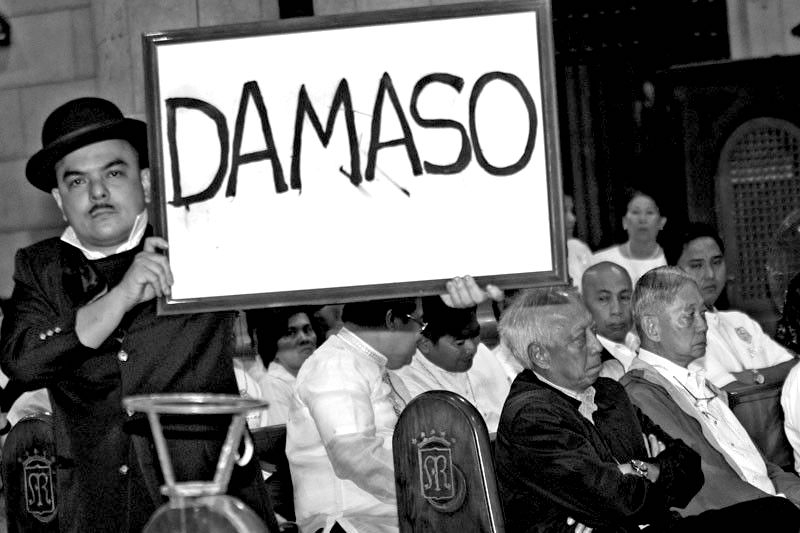Back in 2013, Filipino artist and activist Carlos Celdran was charged with ‘offending religious feelings’ following a protest in 2010 during which he showed support for women’s reproductive rights in Manila Cathedral, The Art Newspaper reports. The protest in question, which took place on 30 September 2010 during an ecumenical meeting, specifically targeted the church’s opposition to a reproductive health bill (subsequently passed in 2012) that guaranteed ‘a universal right to contraception, fertility treatment, sexual education and maternal care’.
On 1 August this year, the Philippines Supreme Court upheld the conviction, citing that the act is punishable under Article 133 of the Revised Penal Code. The code stipulates that engaging in ‘acts notoriously offensive to the feelings of the faithful’ in places of religious worship or during religious ceremonies can result in imprisonment. The sentence means that Celdran, who earlier this year was the performance art programming director of the inaugural Manila Biennale, could be sentenced up to 13 months in prison.
On 15 August, solicitor general Jose Calida spoke in defence of Celdran, asking that the Supreme Court to reverse the conviction because it lacks ‘enough factual basis’. The case also brings to light issues facing freedom of speech. Following Celdran’s conviction, artists including Benedicto Cabrera, Ringo Bunoan, the KoloWn collective, Nicolas Combarro, and Wawi Navarozza, have set up an online petition in support for the removal of Article 133 from the Revised Penal Code. The Art Newspaper also reports that: ‘A Change.org petition to the Philippines legislature to repeal Article 133 has been started by Ryan “Red” Tani, the founder of the secularism and free speech advocacy group Filipino Freethinkers. The organisation, which has a history of protesting religion-based censorship of the arts, also staged a rally outside of the Supreme Court.’
In an earlier story published by ArtAsiaPacific, the magazine’s online platform suggests that the issue is not to do with whether Celdran broke the law, but whether ‘Article 133 is unconstitutional in its suggestion that religious sentiments should be prioritized above the basic right to freedom’.
29 August 2018
